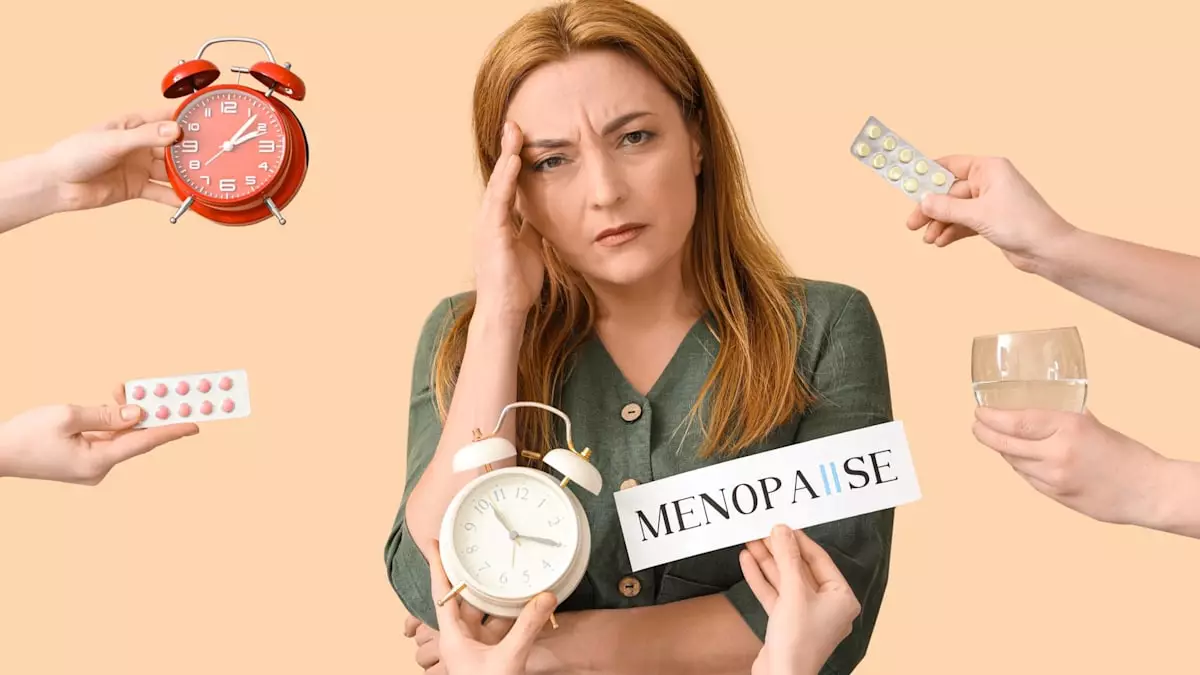Dr. Sharon Malone stands out as a pivotal figure in addressing women’s health issues, particularly around the complicated subject of menopause. With three decades of experience as an obstetrician and gynecologist in Washington, D.C., she has become a trusted confidante and advisor to prominent figures, including former First Lady Michelle Obama. Their friendship, described as a “steadying force,” has not only shaped Malone’s career but also emphasized the need for open discussions about menopause, a topic often surrounded by stigma and misinformation.
Malone reflects on how Michelle Obama’s openness about her own menopause experience has catalyzed crucial conversations concerning women’s health. Obama’s candid acknowledgment of her symptoms has played a significant role in destigmatizing menopause, encouraging many women to confront their health concerns without shame or hesitation. Malone notes that this shift is crucial for breaking down the barriers that women frequently face when addressing menopausal symptoms with healthcare providers, emphasizing how both personal narratives and expert voices can lead to broader societal change.
Dr. Malone’s commitment to enhancing women’s healthcare transcends her personal connections with influential women. As the Chief Medical Advisor at Alloy, an innovative online healthcare platform focused on menopause, she aims to democratize access to vital health information. Her mission is simple yet powerful: to ensure that every woman is informed and equipped to navigate perimenopausal symptoms effectively.
“What I do at Alloy is empower women with the knowledge they need about their own health,” Malone states. She firmly believes that many of the misconceptions surrounding menopause can lead to unnecessary suffering. This is particularly true for women who may not receive adequate support or guidance from their healthcare providers, who might be unfamiliar with current understandings of menopausal symptoms. Therefore, Malone emphasizes the importance of self-diagnosis, especially for women aged 35 to 45 who might be experiencing symptoms but have yet to be officially diagnosed.
Malone explains that perimenopause is often misunderstood. Many women mistakenly believe they are not experiencing perimenopausal changes if they continue to have regular cycles. She clarifies that hormonal fluctuations can begin years before a woman’s last menstrual period, typically starting anywhere from four to ten years prior. Therefore, even if a woman is symptom-free at the age of 45, she is still in perimenopause.
Dr. Malone identifies a wide range of symptoms that can indicate perimenopause, from the commonly recognized ones like mood swings and hot flashes to lesser-known issues like joint pain and brain fog. “The list of symptoms is continually evolving,” she observes, revealing the complexity of this transitional phase in a woman’s life.
To combat these symptoms effectively, she encourages women to be proactive about seeking care rather than suffering in silence. Misdiagnoses can often lead to fragmented treatments where unrelated conditions are addressed separately, ignoring the common thread of perimenopause. Malone advocates for a comprehensive approach where all symptoms are considered under the umbrella of menopausal transition, which can foster better communication between patients and their healthcare providers.
A passionate advocate for hormone therapy, Dr. Malone strives to debunk myths that often deter women from considering this treatment option. She highlights that there are very few contraindications for hormone replacement therapy (HRT), contradicting common misconceptions that often conflate smoking or weight with the risks associated with hormone treatments.
“There are only a handful of valid reasons why a woman might be advised against HRT, such as a history of certain cancers or cardiovascular issues, but beyond that, the benefits can be remarkable,” she insists. Malone’s focus on educating women about their options is particularly crucial, as the right intervention can transform their experience of menopause from one of fear and confusion to empowerment and clarity.
Ultimately, Dr. Malone’s work is about redefining how society perceives menopause. She argues that the narrative surrounding menopause should shift from one of decline to one of vibrancy and empowerment. By sharing experiences, educating peers, and advocating for better healthcare access, women can change how menopause is viewed both personally and publicly.
This shift in perspective is not just vital for current generations of women but also critical for younger women who may view menopause as a daunting milestone. “We must encourage younger generations to look forward to this phase rather than fear it,” Malone urges. By fostering a culture of support and knowledge, women can collectively embrace menopause as a natural, significant part of life that can be navigated with confidence and care.
Dr. Sharon Malone’s tireless advocacy and expertise bridge an essential gap in women’s health, ensuring that menopause is a topic that is not only openly discussed but also understood and managed with compassion and expertise.

